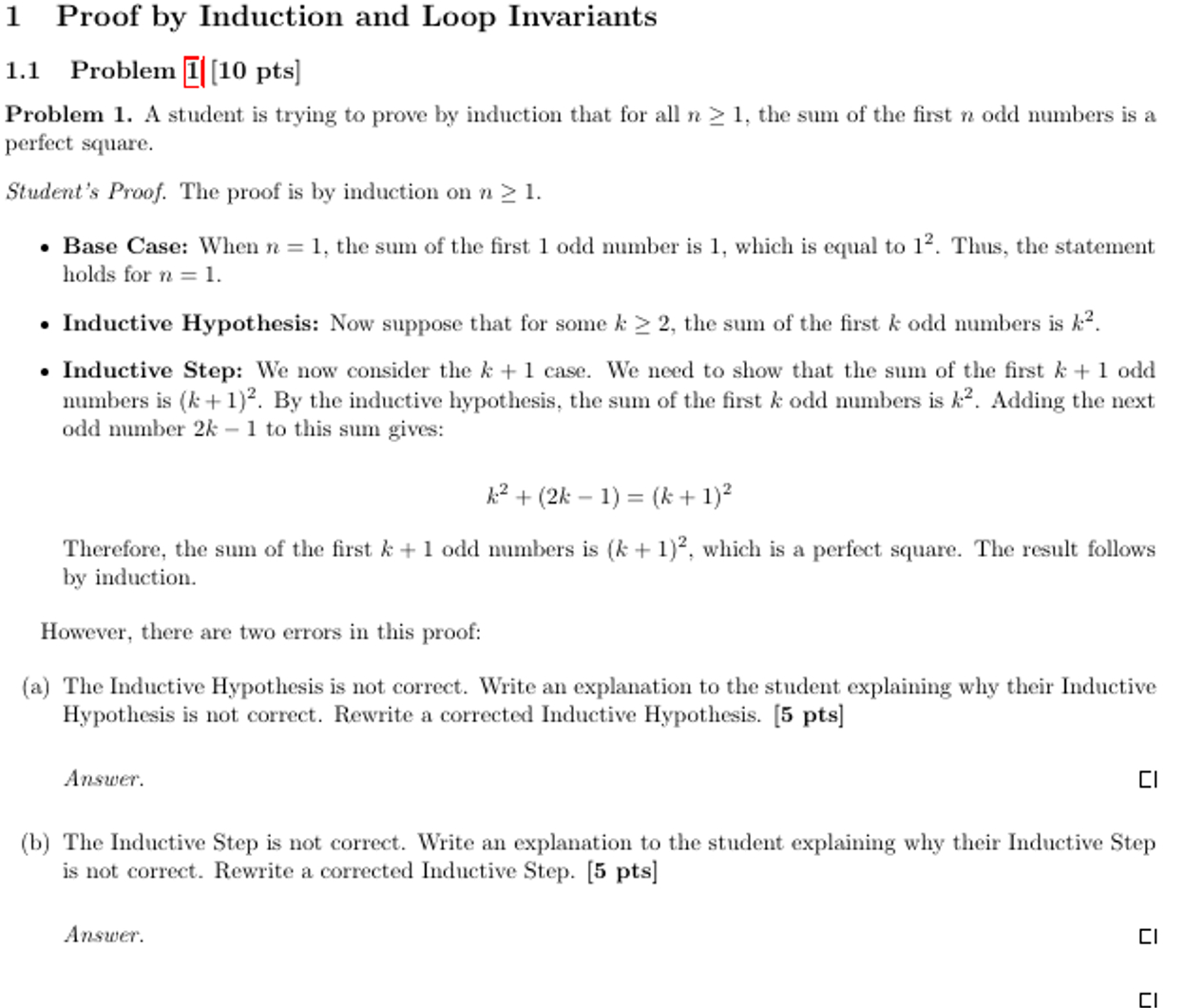(Solved): 1 Proof by Induction and Loop Invariants 1.1 Problem 1|[10 pts] Problem 1. A student is trying to p ...
1 Proof by Induction and Loop Invariants 1.1 Problem 1|[10 pts] Problem 1. A student is trying to prove by induction that for all
n>=1, the sum of the first
nodd numbers is a perfect square. Student's Proof. The proof is by induction on
n>=1. Base Case: When
n=1, the sum of the first 1 odd number is 1 , which is equal to
1^(2). Thus, the statement holds for
n=1. Inductive Hypothesis: Now suppose that for some
k>=2, the sum of the first
kodd numbers is
k^(2). Inductive Step: We now consider the
k+1case. We need to show that the sum of the first
k+1odd numbers is
(k+1)^(2). By the inductive hypothesis, the sum of the first
kodd numbers is
k^(2). Adding the next odd number
2k-1to this sum gives:
k^(2)+(2k-1)=(k+1)^(2)Therefore, the sum of the first
k+1odd numbers is
(k+1)^(2), which is a perfect square. The result follows by induction. However, there are two errors in this proof: (a) The Inductive Hypothesis is not correct. Write an explanation to the student explaining why their Inductive Hypothesis is not correct. Rewrite a corrected Inductive Hypothesis. [5 pts] Answer. (b) The Inductive Step is not correct. Write an explanation to the student explaining why their Inductive Step is not correct. Rewrite a corrected Inductive Step. [5 pts]
